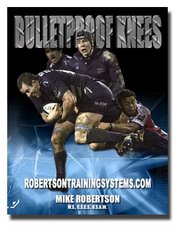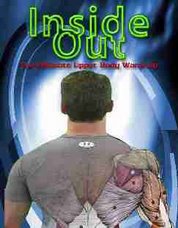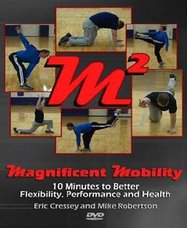Hi Mike,
I purchased Inside-Out and have been working on the push-up plus exercise, among others. I have noticed when I straighten my arm directly in front of me (as though I’m throwing a punch) the winging of the scapula goes away. Would this mean that my serratus anterior works properly and is not the source of my scapular winging OR that my serratus anterior is not correctly activated and that is why I have scapular winging?
If you have significant scapular winging, chances are you have deficiencies in either strength and/or motor control of the serratus anterior. What you describe is normal; many people have appropriate function into protraction, but they have poor eccentric control of the serratus as the scapula moves back into a retracted position. Quite often when you perform push-ups people have no issue with the concentric movement, but struggle considerably and/or get pain when lowering into the bottom.
Focus on “pulling” the shoulder blades together on the eccentric portion of push-ups, along with keeping your shoulder blades tight to the rib cage. If you can’t perform traditional push-ups properly, you may have to perform them on your knees or even in a power rack until you can achieve proper scapular control.
Good luck!
Mike Robertson
Key #1: Improve and Maintain Thoracic Spine Mobility
The mobility of the upper back, or thoracic spine, especially in regard to achieving sufficient upright posture directly affects the ability to properly position the scapulae (the shoulder blades) during upper body training. Poor scapular positioning can actually weaken the rotator cuff muscles and limit how much weight you can lift, limit arm speed, and limit striking power. Rounded back or slouched posture of the upper back prevents the normal movement and positioning, increasing the likelihood of impingement of the rotator cuff. Repetitive “pinching” of the rotator cuff in this case will result in inflammatory or degenerative conditions or even rotator cuff tears.









No comments:
Post a Comment